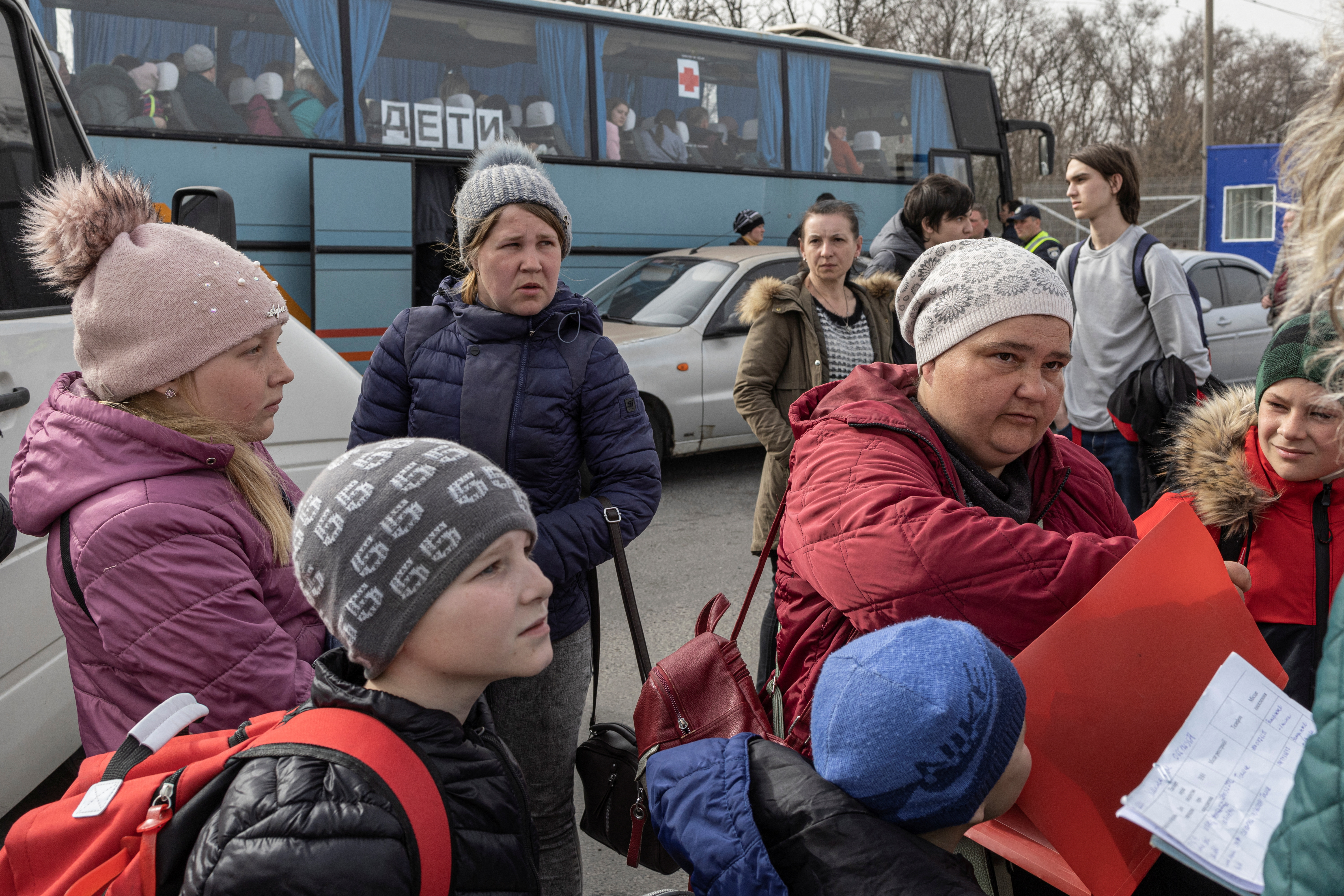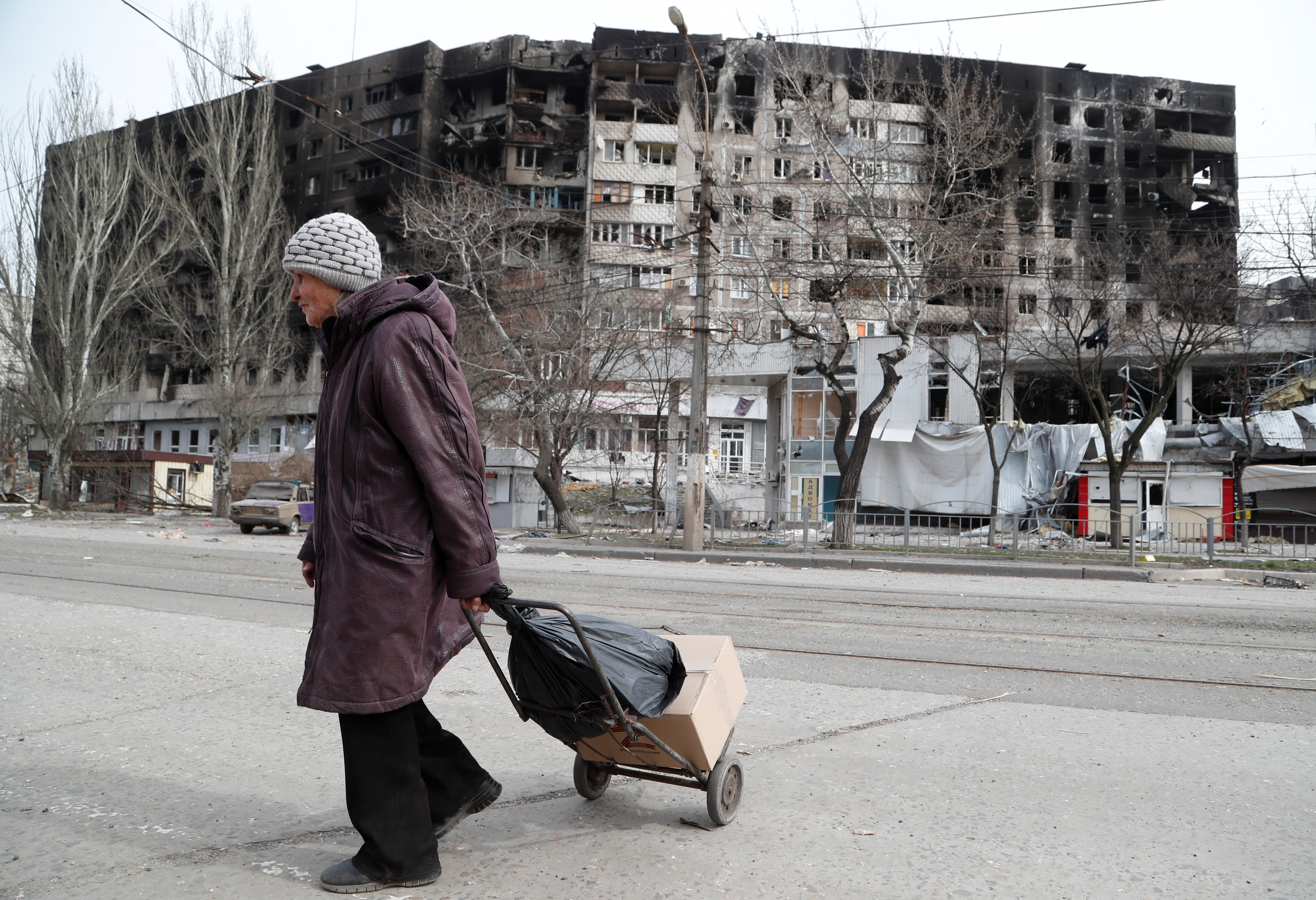
The Ukrainian Government announced that this Saturday seven humanitarian corridors will be active for the evacuation of civilians from cities where fighting is taking place in the eastern regions of Donetsk and Luhansk.
As Ukrainian Deputy Prime Minister Iryna Vereshchuck announced through her Telegram channel, one of the corridors is intended to allow the evacuation of civilians in private cars from besieged Mariupol, in the south, to the Ukrainian-controlled city of Zaporiyia.
Another corridor will open from Berdyansk, occupied by Russian troops, also to Zaporiyia, with buses and private cars.
The other localities from which civilians are intended to be evacuated are Rubizhne, Nishnye, Severodonetsk, Popasna and Lysychansk, in all cases bound for Bakhmut, in the Donetsk “oblast”.
On Friday several thousand citizens of the besieged city of Mariupol, on the Sea of Azov, were able to leave the city in private vehicles, according to Ukrainian President Volodymir Zelensky announced last night.

However, the evacuation mission that the Red Cross intended to carry out failed once again for security reasons, although the organization announced that it will make another attempt today.
The organization indicated in a statement that the conditions “made it impossible to continue” the team, consisting of three vehicles and nine members of the CRIC staff, whose mission was to escort buses with evacuees through a humanitarian corridor.
It is estimated that some 160,000 citizens have been living without basic services for more than a month in Mariupol, a port on the Sea of Azov that has become the main target of Russian troops in Ukraine due to its strategic position between the Crimean peninsula and the Dombas.
For the successful evacuation of citizens who wish to leave Mariupol voluntarily “it is essential that the parties respect agreements, provide the necessary conditions and guarantees of security,” the ICRC said, stressing its traditional role as a neutral intermediary in the conflict.

The organization had already warned hours earlier, through the mouth of its Geneva spokesman Ewan Watson, that the possible evacuation on Friday was not guaranteed, and that no essential details were yet available for it, such as the exact route of departure and the duration of the operations.
In Mariupol, where some of the attacks that human rights organizations denounce as possible war crimes have been perpetrated, water and food have been scarce for weeks, and there is no supply of electricity or heating.
A previous attempt to evacuate the port city in early March with ICRC mediation also failed, after hostilities escalated in the area and the route out of the town was interpreted to be unsafe.
The organization has recalled that, for the evacuation to be successful, it is “critical” that the parties to the conflict respect the agreements reached and provide the necessary conditions and security guarantees to carry it out. Finally, it has insisted on its character as a “neutral intermediary”.
Mariupol authorities reported on Friday that some of the routes designated for evacuation continue to be blocked by Russian forces.
(With information from EFE and Europa Press)
KEEP READING:
Últimas Noticias
Debanhi Escobar: they secured the motel where she was found lifeless in a cistern
Members of the Specialized Prosecutor's Office in Nuevo León secured the Nueva Castilla Motel as part of the investigations into the case

The oldest person in the world died at the age of 119
Kane Tanaka lived in Japan. She was born six months earlier than George Orwell, the same year that the Wright brothers first flew, and Marie Curie became the first woman to win a Nobel Prize

Macabre find in CDMX: they left a body bagged and tied in a taxi
The body was left in the back seats of the car. It was covered with black bags and tied with industrial tape
The eagles of America will face Manchester City in a duel of legends. Here are the details
The top Mexican football champion will play a match with Pep Guardiola's squad in the Lone Star Cup

Why is it good to bring dogs out to know the world when they are puppies
A so-called protection against the spread of diseases threatens the integral development of dogs



